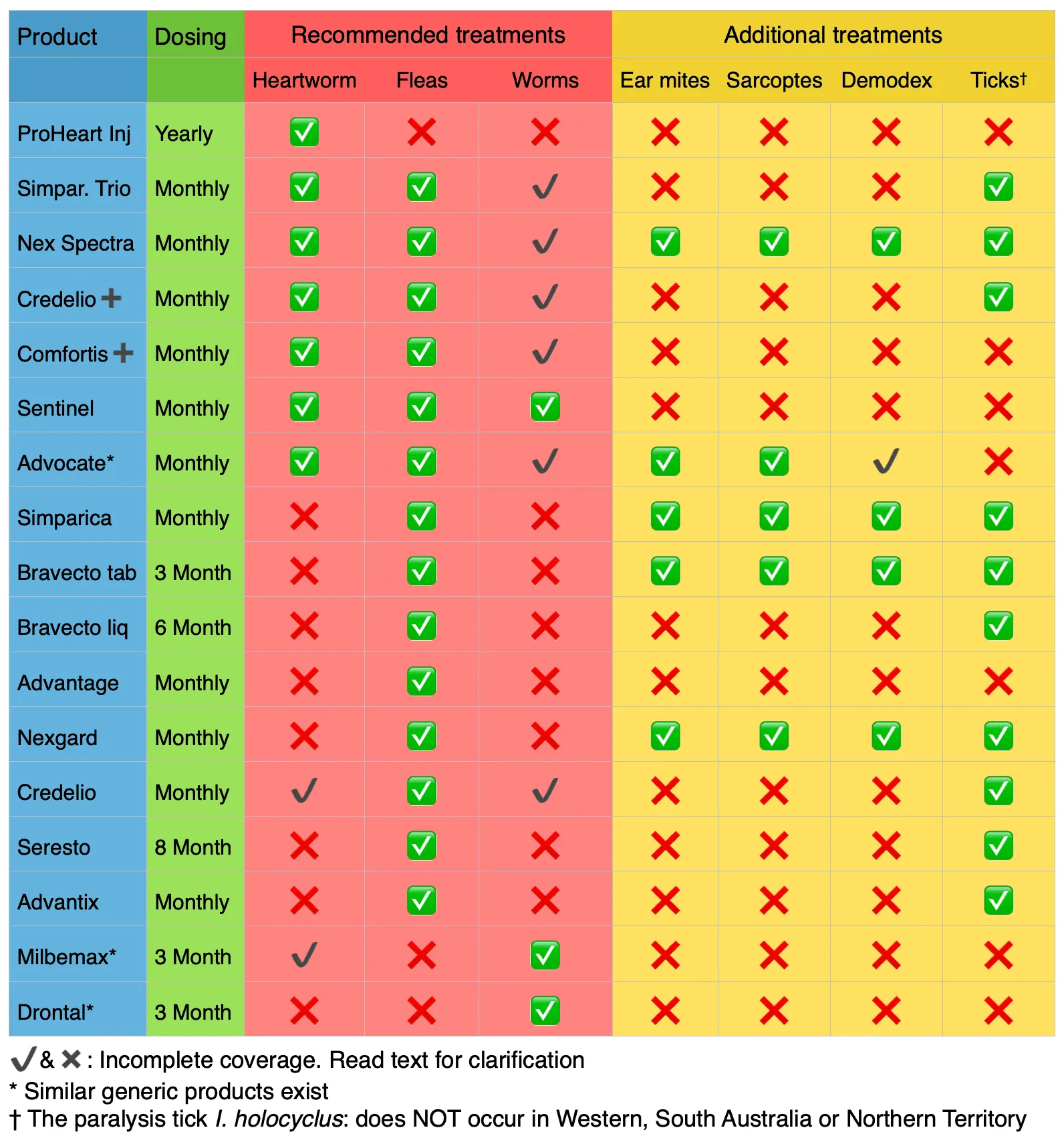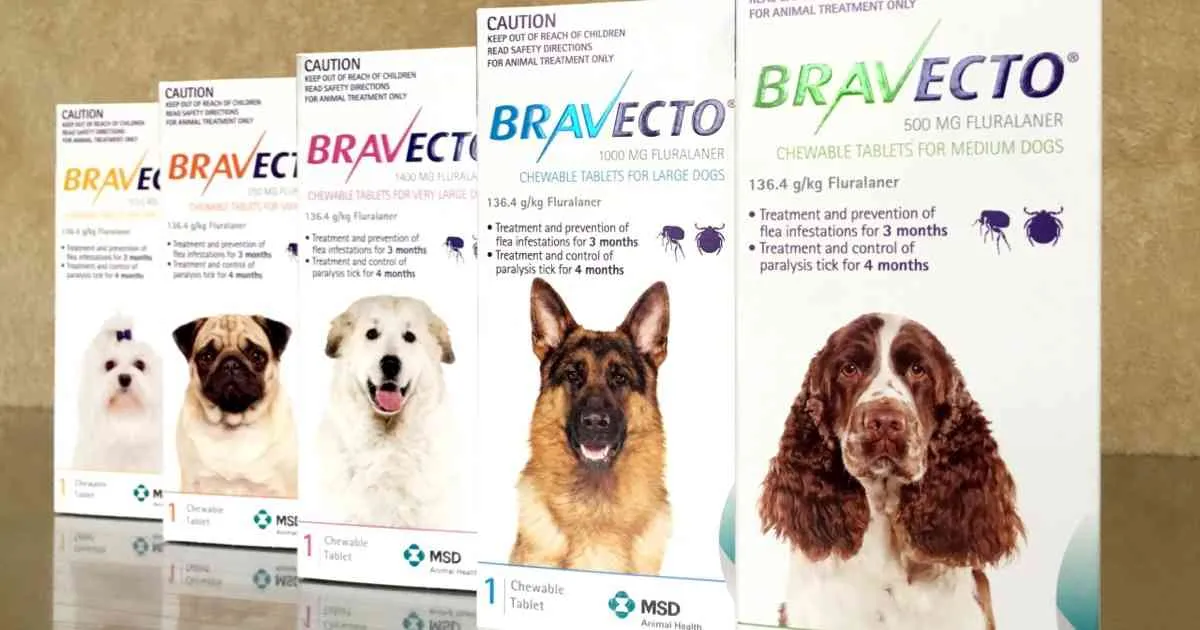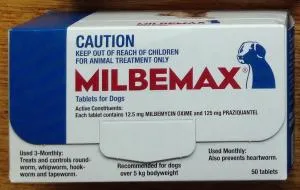Navigating the vast array of options for protecting your beloved canine companion from fleas, ticks, and intestinal worms can feel overwhelming. As dedicated dog owners, we all want the best for our pets, ensuring they lead healthy, happy lives free from these common parasites. This comprehensive guide from Dog Care Story aims to demystify the choices, presenting you with the most common, safe, and respected treatments available today. We’ll explore various products designed to tackle these threats, helping you make informed decisions for your dog’s preventative care.
Understanding the Common Parasite Threats to Your Dog
Effective parasite prevention starts with understanding the risks. Fleas, ticks, heartworm, and intestinal worms each pose distinct threats to your dog’s health and well-being. Consistent prevention is key to safeguarding them.
Fleas: More Than Just an Itch
Fleas are a persistent nuisance that can cause intense itching, skin irritation, and allergic reactions in dogs. Beyond discomfort, fleas can transmit tapeworms and, in severe infestations, lead to anemia, especially in puppies. Regular flea control is essential for your dog’s comfort and overall health.
Ticks: Silent Harbingers of Disease
Ticks are dangerous ectoparasites capable of transmitting serious diseases such as Lyme disease, ehrlichiosis, and anaplasmosis. In many regions, paralysis ticks pose a life-threatening risk, releasing a neurotoxin that can cause paralysis and even death if not treated promptly. While some areas like Adelaide have a low risk of tick paralysis, it’s crucial to understand your local environment and take appropriate preventative measures, particularly if you travel.
Heartworm: A Silent Killer
Heartworm disease is a severe and potentially fatal condition caused by parasitic worms that live in the heart, lungs, and associated blood vessels of affected pets. Transmitted by mosquitoes, it can lead to severe lung disease, heart failure, and damage to other organs. Early detection and consistent prevention are vital, as treatment for established heartworm disease can be complex, costly, and risky.
Intestinal Worms: An Internal Threat
Dogs are susceptible to several types of intestinal worms, including roundworms, hookworms, whipworms, and tapeworms. These internal parasites can cause a range of issues from digestive upset, vomiting, and diarrhea to weight loss, anemia, and a dull coat. Some intestinal worms can even be transmitted to humans, highlighting the importance of a consistent deworming schedule for your dog.
All-in-One Solutions: Comprehensive Protection Against Fleas, Ticks, Heartworm, and Worms
For busy pet owners seeking convenience and broad-spectrum protection, several products combine treatments for multiple parasites into a single, easy-to-administer solution. These products often cover fleas, ticks, heartworm, and some intestinal worms.
 Various flea, tick, and heartworm prevention products for dogs
Various flea, tick, and heartworm prevention products for dogs
Proheart® SR12: Annual Heartworm Injection
Prevents: Heartworm only.
Form: An annual injection administered by your veterinarian (moxidectin).
Key Benefits: Proheart SR12 offers continuous, guaranteed protection against heartworm disease, eliminating the need for monthly doses. It’s safe even if a dose is missed, and can be used in breeding dogs, during pregnancy, and lactation. Many owners appreciate the peace of mind knowing the most life-threatening parasitic disease is covered for a full year.
Considerations: While excellent for heartworm, dogs still require monthly flea control and intestinal worming every three months. We typically recommend starting Proheart at 6 months of age, often coinciding with annual vaccinations for convenience.
Simparica® Trio: Monthly Chew for Triple Protection
Prevents: Heartworm, fleas, intestinal worms (except tapeworm), and paralysis ticks. It also treats mange caused by demodex and sarcoptes mites.
Form: A flavored chew given once every month (sarolaner, moxidectin & pyrantel).
Key Benefits: This highly effective chew provides comprehensive protection with no bathing restrictions or messy application. Its broad-spectrum action covers many common parasites in one go.
Considerations: Simparica Trio does not treat tapeworms, so an additional tapewormer may be required. Safety has not been evaluated in pregnant, breeding, or lactating dogs. It can be used in puppies from 8 weeks of age and over 1.25kg.
Nexgard® Spectra: Monthly Chew for Broad Coverage
Prevents: Heartworm, fleas, intestinal worms (except tapeworm), mange caused by demodex and sarcoptes mites, and ear mites. It is also effective against paralysis ticks.
Form: A meaty chew given once every month (afoxolaner & milbemycin).
Key Benefits: Nexgard Spectra offers highly effective flea and heartworm prevention, along with treatment for various mites. It’s convenient, has no bathing restrictions, and is safe for breeding, pregnant, and lactating females.
Considerations: Like Simparica Trio, it does not treat tapeworms. It can be used from 8 weeks of age in animals over 2kg.
Credelio Plus®: Monthly Chew for Fleas, Ticks, and Heartworm
Prevents: Fleas, ticks (including paralysis ticks), and heartworm disease.
Form: A meaty chew given once every month (lotilaner, milbemycin).
Key Benefits: Credelio Plus provides highly effective flea and tick control along with heartworm prevention, all in a convenient monthly chew with no bathing restrictions.
Considerations: Use with caution in dogs with a history of seizures. Safety has not been evaluated in pregnant, breeding, or lactating dogs. It can be used from 8 weeks of age in animals over 1.4 kg.
Comfortis® Plus (previously Panoramis): Monthly Tablet for Fleas, Heartworm, and Most Worms
Prevents: Heartworm, fleas, and intestinal worms (except tapeworm).
Form: A tablet given monthly with food (spinosad & milbemycin).
Key Benefits: Offers highly effective flea and heartworm control without restrictions on bathing.
Considerations: Not recommended for Collies or Australian Shepherds due to potential sensitivities. An additional tapewormer is advised every 6 months. Some owners find administering a tablet difficult. Safety in breeding, pregnancy, and lactation has not been established. It can be used from 14 weeks of age. Dogs who have missed prevention and may have heartworm require a blood test before starting.
Sentinel®: Monthly Tablet for Heartworm, Fleas, and Intestinal Worms
Prevents: Heartworm, fleas (by sterilizing them), and intestinal worms.
Form: A tablet given monthly with food (milbemycin, lufenuron & praziquantel).
Key Benefits: Sentinel offers comprehensive internal parasite control and flea management, with no restrictions on bathing. It is also safe for very young animals, and has been shown to be safe in pregnancy and lactation.
Considerations: The tablet can be large and requires consistent monthly administration. Its flea control method sterilizes fleas rather than killing them, which means dogs in heavily flea-infested environments might still require additional treatments. Sentinel is safe in puppies from 6 weeks of age and breeding dogs.
Advocate®: Monthly Spot-On for Heartworm, Fleas, and Mites
Prevents: Heartworm, fleas, some intestinal worms, and most mites (including ear mites and sarcoptic mange, and aids in the control of demodectic mange).
Form: A vial of liquid applied to the back of the neck on a monthly basis (moxidectin & imidacloprid).
Key Benefits: Provides rapid flea control and is particularly useful for treating puppies with ear mites or dogs exposed to sarcoptic mange.
Considerations: Animals can be bathed after 48 hours, but frequent bathing may reduce flea control effectiveness. The solvent can damage clothing and painted surfaces, so care is needed during application. Coat color changes have been observed at the application site. Intestinal worming tablets every 3 months are highly recommended as it doesn’t cover all intestinal worms. Safety in pregnancy has not been established.
Revolution® (Discontinued) & Alternatives: Monthly Spot-On
Prevents: Heartworm, fleas, some intestinal worms, and some mites (ear mites, sarcoptic mange).
Form: A vial of liquid applied to the back of the neck on a monthly basis (selamectin).
Key Benefits: Revolution was a popular, quick-drying, and less messy spot-on treatment. Once absorbed, bathing did not reduce its effectiveness. It was also noted for its safety in very young animals and in breeding, pregnant, or lactating dogs.
Alternatives: While Revolution is discontinued, equivalent products like Selapro® and Evicto® are now available. However, these alternatives typically do not include intestinal worming, meaning a separate intestinal worm treatment will still be needed. For all heartworm preventatives, a blood test is required for dogs who may have missed prevention and potentially have heartworm.
Targeted Flea and Tick Treatments
These products are ideal for owners who prefer to manage heartworm and intestinal worms separately, or whose dogs are not at risk for heartworm. Remember, these treatments should always be used in conjunction with appropriate heartworm and intestinal worm prevention. All cats and dogs living in the same household should be treated to effectively control fleas. Systemic (tablet) treatments are often considered more environmentally friendly than topical (spot-on) options. Important warning: Never use products formulated for dogs on cats, rabbits, or ferrets, as they can be highly toxic.
Simparica®: Monthly Chew for Fleas, Mites, and Ticks
Prevents: Fleas, mites (including demodectic and sarcoptic mange, and ear mites), and ticks (including paralysis ticks).
Form: A tablet given once every month (sarolaner).
Key Benefits: Offers highly effective flea and tick control with no bathing restrictions or mess. It is registered for the treatment of various mange types.
Considerations: Safety has not been evaluated in breeding, pregnant, or lactating dogs. It can be used from 8 weeks of age in puppies and dogs over 1.3kg.
Bravecto®: Long-Lasting Flea and Tick Protection
Prevents: Fleas and ticks (including paralysis ticks). The chewable tablet also treats demodectic and sarcoptic mange and ear mites.
Form: Available as a chewable tablet (given every 3 months with food) or a spot-on pipette (given every 6 months) (fluralaner).
Key Benefits: Bravecto provides very long-acting flea control and extended protection against paralysis ticks. It is safe for breeding, pregnant, and lactating animals.
Considerations: While usable from 8 weeks of age and 2kg bodyweight, due to significant weight changes in young puppies, it is generally recommended to start Bravecto at or after 6 months of age for more accurate long-term dosing. Administer with a meal.
 Bravecto chewable tablet for long-lasting flea and tick control in dogs
Bravecto chewable tablet for long-lasting flea and tick control in dogs
Advantage®: Monthly Spot-On for Flea Control
Prevents: Fleas.
Form: A vial of liquid applied to the back of the neck on a monthly basis (imidacloprid).
Key Benefits: Provides fast, effective flea control with a long history of reliable performance. It’s suitable for a wide range of doses for multi-animal households and is safe in pregnancy and lactation.
Considerations: Animals can be bathed after 48 hours, but frequent bathing may reduce its effectiveness. The solvent can damage clothing and painted surfaces. Permanent hair color changes have been observed at the application site in some dogs. Advantage can be used from weaning; treating the mother should also protect the puppies.
Nexgard®: Monthly Chew for Fleas and Ticks
Prevents: Fleas and ticks (including paralysis ticks).
Form: A meaty chew given once every month (afoxolaner).
Key Benefits: Delivers highly effective flea and tick control with no bathing restrictions. It is safe for breeding, pregnant, and lactating females.
Considerations: Use with caution in dogs with a history of seizures. Safety in breeding males has not been evaluated. Nexgard can be used from 8 weeks of age in animals over 2kg.
Credelio®: Monthly Chew for Flea and Tick Control
Prevents: Fleas and ticks (including paralysis ticks).
Form: A meaty chew given once every month (lotilaner).
Key Benefits: Offers highly effective flea and tick control without bathing restrictions.
Considerations: Use with caution in dogs with a history of seizures. Safety has not been evaluated in pregnant, breeding, or lactating dogs. Credelio can be used from 8 weeks of age in animals over 1.3 kg.
Seresto®: Long-Lasting Flea and Tick Collar
Prevents: Fleas (for 8 months) and ticks (for 4 months).
Form: An insecticide-impregnated collar (imidacloprid & flumethrin).
Key Benefits: Provides extended, continuous protection against fleas and ticks without the need for monthly applications or oral medication.
Considerations: Safety in pregnancy has not been established. Seresto can be used from 7 weeks of age.
Advantix®: Monthly Spot-On for Fleas, Ticks, Flies & Mosquitoes
Prevents: Fleas (for 1 month) and ticks (for 2 weeks). It also offers a unique repellent effect against flies and mosquitoes.
Form: A vial of liquid applied to the back of the neck on a monthly basis (imidacloprid & permethrin).
Key Benefits: Beyond flea and tick control, its repellent properties are beneficial in areas with high insect activity. It is safe for use on pregnant and lactating bitches.
Considerations: Advantix is very toxic to cats, so extreme caution must be exercised in multi-pet households. It can be used from 7 weeks of age.
Essential Intestinal Worm Treatments
Even with comprehensive all-in-one products, some intestinal worms, particularly tapeworms, may not be fully covered. Dedicated intestinal wormers are crucial for a complete parasite prevention program. Remember, there are four important intestinal worms: roundworm, hookworm, whipworm, and tapeworm. Most quality wormers contain two or more active ingredients, including praziquantel. Always worm all adult dogs in a household at the same time. The recommended worming schedule is every two weeks until 12 weeks of age, then every month until 6 months old, and then every three months for life. Dogs in hydatid tapeworm areas (typically rural) should be wormed every 6 weeks.
Milpro®, Milbemax® & Similar: Comprehensive Intestinal Worming
Prevents: All common intestinal worms (milbemycin & praziquantel). It can also be used for heartworm control if given monthly.
Form: Tablet.
Key Benefits: These small tablets are easily hidden in food and are highly effective against a broad spectrum of intestinal worms. A single tablet can treat dogs up to 25kg, making dosing simple. They are also safe in pregnant bitches.
Considerations: If used for heartworm control, dogs who may have missed prevention and potentially have heartworm require a blood test before starting. Follow the recommended worming schedule closely.
 Small white dog taking a Milbemax intestinal worming tablet
Small white dog taking a Milbemax intestinal worming tablet
Drontal®: Trusted All-Wormer for Dogs
Prevents: All common intestinal worms (various active ingredients).
Form: Available as tablets, drops, or flavored chews.
Key Benefits: Drontal is an original, trusted brand of all-wormer, known for its highly effective worming properties. Many generic similar formulations are also available, offering choices for administration. It is safe in pregnancy.
Considerations: Follow the recommended worming schedule based on your dog’s age and risk factors.
Important Considerations When Choosing the Best Dog Flea, Tick, and Worm Treatment
Selecting the right parasite prevention plan is a tailored process. Here are key factors to consider:
- Dog’s Age and Weight: Dosages and product suitability vary significantly by age and weight. Always consult the product label and your vet.
- Breed Sensitivities: Certain breeds, like Australian Shepherds and Collies, carry the MDR1 gene, making them sensitive to drugs containing ivermectin (often found in supermarket heartworm tablets). Always inform your vet of your dog’s breed.
- Lifestyle and Environment: A dog that frequents dog parks, travels to rural areas, or spends a lot of time outdoors will have a higher exposure risk and may need more robust protection.
- Geographical Location: The prevalence of certain parasites, especially paralysis ticks and heartworm, varies by region. Consult your local vet to understand specific local risks.
- Ease of Administration: Products come in various forms—chews, tablets, spot-ons, injections, and collars. Consider which method is easiest for you and your dog to ensure consistent compliance. If your dog won’t eat medicine, a spot-on or injection might be a better choice.
- Specific Parasite Coverage: Ensure your chosen products comprehensively cover all relevant parasites: fleas, ticks (especially paralysis ticks if in a risk area), heartworm, and all common intestinal worms (roundworm, hookworm, whipworm, tapeworm).
- Safety in Special Cases: If your dog is pregnant, lactating, used for breeding, or has a history of medical conditions like seizures, discuss these with your vet to ensure the chosen treatment is safe. If your dog experiences issues like loose motion medicine for dogs or requires cerenia dog medicine for nausea, these should be discussed with your vet to ensure compatibility with parasite prevention.
- Combining Treatments: If using multiple products, ensure they are compatible and that you are not double-treating for the same parasite, which could lead to adverse effects.
Consulting Your Veterinarian: Your Best Resource
Ultimately, the most crucial step in choosing the best dog flea tick and worm treatment is to consult your veterinarian. They can provide personalized advice based on your dog’s individual health, lifestyle, breed, and your geographical location. They will also advise on the necessity of heartworm testing before starting any new heartworm prevention regimen. Regular check-ups are vital to ensure your dog remains healthy and protected year-round.
Consistent and appropriate parasite prevention is a cornerstone of responsible pet ownership. By understanding the options and working closely with your veterinarian, you can ensure your dog enjoys optimal health and a life free from the discomfort and dangers of parasites.
For more detailed information on specific treatments and broader pet care advice, explore other articles on Dog Care Story!
